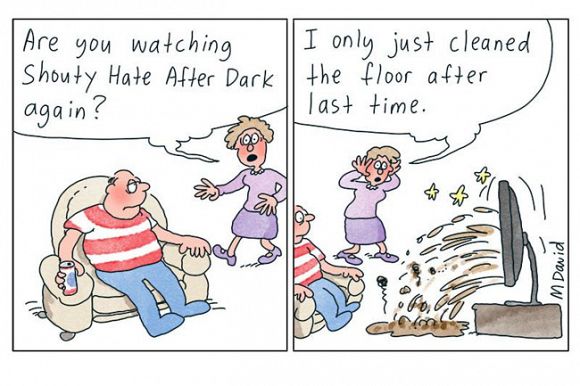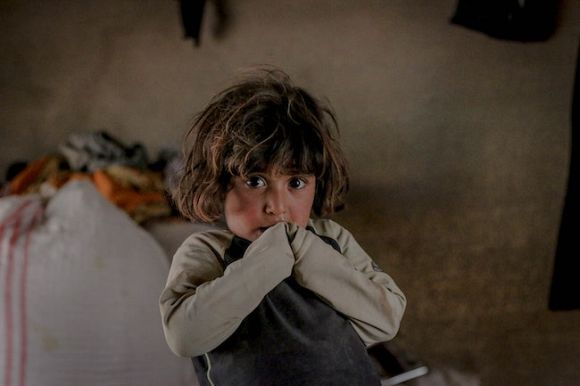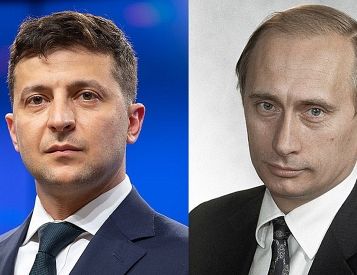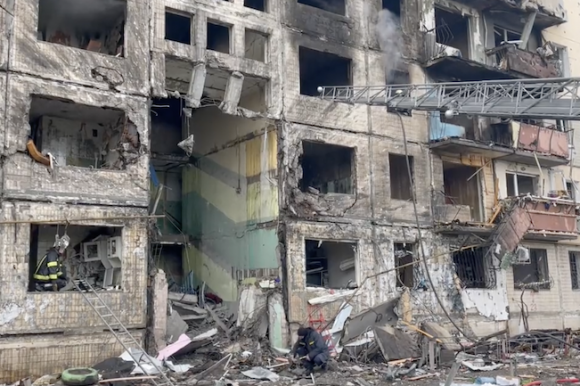As in all wars, truth has been the first casualty in Ukraine, as Alan Austin reports.
RUSSIAN SOLDIERS are fleeing from the battlefield in despair and disarray, flinging away their weapons as they run home to their mothers. No, wait... the Russians have strategically withdrawn a short distance and are regrouping for their next crushing offensive, which will be at a time of their choosing.
So which is it? Both scenarios were confidently reported last week by observers who claim to be describing events accurately.
Scores of news outlets, government agencies, private security analysts and bedroom bloggers have established strong and dedicated audiences with their daily – and in some cases hourly – updates of the war in Ukraine.
They use coloured maps, screenshots of official documents and quotes from global authorities, all exuding confidence that their analysis is right. But as the following reports on Ukraine’s recent Kharkiv offensive illustrate, their observations are vastly divergent.
Official sources
The Ukraine Media Centre quoted Natalia Humeniuk, a senior Ukrainian defence official:
“The invaders cannot resupply the missiles for their S-300 air defence systems... All Russian P.O.W.s that have been added to our exchange pool share the realisation of their lack of prospects in this war. They are being left behind; Ukraine’s Armed Forces impose logistical constraints; the invaders are demoralised and shaken in terms of their morale.”
Russia’s Ministry of Defence, in contrast, reported last week:
‘The Russian Aerospace Forces, missile forces and artillery are launching precision strikes on AFU units and reserves in the Kharkiv region... Enemy losses were over 200 servicemen and more than 20 military equipment... It's important to say that the daily strikes against civilian infrastructure are carried out by the Kyiv regime in a deliberate and targeted manner.’
Pro-Ukrainian analysts
The pro-American Institute for the Study of War offers useful time-lapse maps showing territory gained, lost and regained.
It claimed last week:
‘Ukrainian forces have captured an estimated 2,500 square kilometres in Kharkiv Oblast in the Kharkiv area counteroffensive as of 9 September.
Ukrainian forces are likely clearing pockets of disorganised Russian forces caught in the rapid Ukrainian advance.’
In his daily Update from Ukraine, pro-Ukrainian YouTube analyst Denys Davydov highlights major events and shows territory won or lost.
Last Thursday he reported:
“The ex-military chief in Europe Ben Hodges said that we should be prepared for the possible Russian collapse. Now, probably, we are witnessing the deep crisis in Russia that may appear at any moment and we have no doubt Ukraine will win this war.”
Last week, global news agency Reuters reported:
‘Moscow abandoned its main bastion in northeastern Ukraine on Saturday, in a sudden collapse of one of the war's principal front lines after Ukrainian forces made a rapid advance.
Ukraine hailed it as a turning point in the 6-month-old war, with thousands of Russian soldiers leaving behind ammunition stockpiles and equipment as they fled.’
Markos Moulitsas blogs at Daily Kos, with a large following of passionate anti-Russian zealots.
He wrote last Thursday:
‘There is a very real scenario in which Russia falls apart even more spectacularly than the Soviet Union... Russia will lose in Ukraine. The question will soon be how much new misery this will cause on the Asian continent.’
BBC News is rabidly anti-Russian, focusing predominantly on Russian atrocities:
“Accounts are emerging of brutality and murders carried out by Russian troops in areas just liberated...”
Other staunchly pro-Ukrainian outlets include TLDR News EU, The Guardian, Australia’s Nine Entertainment newspapers, The Insider and most News Corp outlets.
Pro-Russian analysts
Brian Berletic, at the Youtube channel The New Atlas, presents regular updates, largely debunking what he sees as false pro-Ukrainian propaganda:
“Ukraine practically went into an undefended area (Kharkiv region) and took this territory. And now you have the Western media claiming ‘See! See how weak and incompetent Russia’s military was?’ Well, you went into an area where Russia’s military actually wasn’t. Where they were, around Kherson, Ukraine suffered catastrophic losses. Think about the implications of what that really means.”
Scott Ritter came to prominence as a UN weapons inspector in Iraq in the 1990s and later as a critic of U.S. foreign policy.
He said last week:
This is a game changer. Russia is destroying the Ukrainian army but NATO is reconstituting it. What we are seeing here is a reconstituted Ukrainian army thrown into battle... The problem is there are not enough of them. They struck in areas where the Russian lines are weak. Russia only has 200,000 troops covering a very big battle zone... If you hit it with a strong concerted force with artillery backup you can punch a hole through there. That’s what Ukraine has done.
Other pro-Russian commentators are Gonzalo Lira, former journalist for Russian television Semyon Pegov and many others in the Russian language.
The neutral observers
These are relatively few.
Alexander Mercouris of The Duran community and YouTube presence seems to have contacts in both the Russian and Ukrainian administrations:
Putin’s strategy is to just keep the war going at its present level. Maybe they’ll have to give up some ground here, maybe they will be able to gain more important ground somewhere else... It is not expensive in terms of human losses, which is probably quite low. Their industrial machine has shown it can keep launching military strikes going all over Ukraine... They can just keep this going for as long as they want... whereas Ukraine gradually struggles. Its economy is in deepening crisis.
Professor Jeffrey Sachs from Columbia University is President of the UN Sustainable Development Solutions Network.
He said recently:
“The war in Ukraine could have been avoided and should have been avoided through diplomacy. President Putin of Russia has been saying for years, ‘Do not expand NATO into the Black Sea, not into Ukraine, much less to Georgia... This will jeopardise our security. Let’s have diplomacy.’ The United States rejected diplomacy.”
So we have a smorgasbord of analysts from which to choose. Clearly, the more we access the better will be our understanding. The old adage “question everything, believe nothing” seems apt.
Alan Austin is an Independent Australia columnist and freelance journalist. You can follow him on Twitter @alanaustin001.
Related Articles
- Russia may defeat Ukraine — but at incalculable human cost
- EXCLUSIVE: Inside the war on Ukraine
- Understanding the war in Ukraine
- Alexander Dugin: A Russian fascist who helped to convince Putin to invade
- We must remember women during the war in Ukraine
 This work is licensed under a Creative Commons Attribution-NonCommercial-NoDerivs 3.0 Australia License
This work is licensed under a Creative Commons Attribution-NonCommercial-NoDerivs 3.0 Australia License
Support independent journalism Subscribe to IA.

















